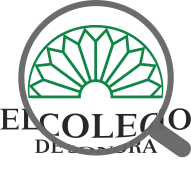Núntaha'yi Traditional Agroecosystems in the Los Tuxtlas Biosphere Reserve, Veracruz, Mexico
| dc.audience | generalPublic | |
| dc.contributor.author | Aguilar Vásquez, Yunin | |
| dc.contributor.author | Caso Barrera, Laura | |
| dc.contributor.author | Aliphat Fernández, Mario | |
| dc.coverage.spatial | MX-SON | en-US |
| dc.creator | Aguilar Vásquez, Yunin; 419318 | |
| dc.creator | Caso Barrera, Laura;#0000-0002-5868-3188 | |
| dc.creator | ALIPHAT FERNANDEZ, MARIO MANUEL; 15609 | |
| dc.date | 2019-08-28 | |
| dc.date.accessioned | 2022-06-28T19:43:04Z | |
| dc.date.available | 2022-06-28T19:43:04Z | |
| dc.date.issued | 2019-08-28 | |
| dc.description | The aim of this paper is to analyze the functioning of the Núntaha’yi agroecosystems in Ocozotepec, Veracruz, as well as the effect that the regulations imposed by the Los Tuxtlas Biosphere Reserve have on them. The infield-outfield theoretical framework, direct observation, interviews, workshops and field trips were used for the analysis. The results show that limitations in the change of acahual vegetation and restrictions of use of the core zone have intensified the agroecosystems closest to the community (infield), and restricted the use of the territory in remote places and of difficult access (outfield). This causes that the landscape becomes homogeneous, unproductive and that the slash-and-burn system becomes unsustainable. The conclusion is that peasant and indigenous community management should be evaluated as a strategy to achieve sustainability, biodiversity conservation and long-term human support. | en-US |
| dc.description | Los agroecosistemas tradicionales núntaha’yi son fundamentales para la conservación de la Sierra de Santa Marta Veracruz, al encontrarse dentro de una Área Natural Protegida se ven afectados por la normatividad de la misma. Usando el marco teórico infield-outfield, entrevistas, talleres y recorridos en campo, analizamos el funcionamiento de los agroecosistemas núntaha’yi del territorio de Ocozotepec, así como el impacto que sobre ellos tiene la normatividad impuesta por el Área Natural Protegida. Concluimos que debido a las limitantes en el cambio de la vegetación de los acahuales y las restricciones de uso de la zona núcleo, se han intensificado los agroecosistemas más cercanos a la comunidad (infield) restringiéndose casi por completo el uso del territorio ubicado en las zonas alejadas y de difícil acceso a la comunidad (outfield). Esto promueve la transformación del territorio en un paisaje homogéneo, poco productivo donde el sistema de Tumba-Roza-Quema se vuelve insostenible. | es-ES |
| dc.description.abstract | The aim of this paper is to analyze the functioning of the Núntaha’yi agroecosystems in Ocozotepec, Veracruz, as well as the effect that the regulations imposed by the Los Tuxtlas Biosphere Reserve have on them. The infield-outfield theoretical framework, direct observation, interviews, workshops and field trips were used for the analysis. The results show that limitations in the change of acahual vegetation and restrictions of use of the core zone have intensified the agroecosystems closest to the community (infield), and restricted the use of the territory in remote places and of difficult access (outfield). This causes that the landscape becomes homogeneous, unproductive and that the slash-and-burn system becomes unsustainable. The conclusion is that peasant and indigenous community management should be evaluated as a strategy to achieve sustainability, biodiversity conservation and long-term human support. | en-US |
| dc.description.abstract | Los agroecosistemas tradicionales núntaha’yi son fundamentales para la conservación de la Sierra de Santa Marta Veracruz, al encontrarse dentro de una Área Natural Protegida se ven afectados por la normatividad de la misma. Usando el marco teórico infield-outfield, entrevistas, talleres y recorridos en campo, analizamos el funcionamiento de los agroecosistemas núntaha’yi del territorio de Ocozotepec, así como el impacto que sobre ellos tiene la normatividad impuesta por el Área Natural Protegida. Concluimos que debido a las limitantes en el cambio de la vegetación de los acahuales y las restricciones de uso de la zona núcleo, se han intensificado los agroecosistemas más cercanos a la comunidad (infield) restringiéndose casi por completo el uso del territorio ubicado en las zonas alejadas y de difícil acceso a la comunidad (outfield). Esto promueve la transformación del territorio en un paisaje homogéneo, poco productivo donde el sistema de Tumba-Roza-Quema se vuelve insostenible. | es-ES |
| dc.identificator | 5 | |
| dc.identifier | https://regionysociedad.colson.edu.mx:8086/index.php/rys/article/view/1147 | |
| dc.identifier | https://doi.org/10.22198/rys2019/31/1147 | |
| dc.identifier.uri | https://repositorio.colson.edu.mx/handle/2012/45978 | |
| dc.language.iso | spa | |
| dc.publisher | El Colegio de Sonora | es-ES |
| dc.rights | Derechos de autor 2019 Yunin Aguilar Vásquez, Laura Caso Barrera, Mario Aliphat Fernández | es-ES |
| dc.rights | https://creativecommons.org/licenses/by-nc/4.0/ | es-ES |
| dc.rights | info:eu-repo/semantics/openAccess | es-ES |
| dc.source | 2448-4849 | |
| dc.source | 1870-3925 | |
| dc.source | región y sociedad; Vol. 31 (2019): Rolling Pass; e1147 | en-US |
| dc.source | región y sociedad; Vol. 31 (2019): Publicación continua; e1147 | es-ES |
| dc.subject | Ciencias Sociales | |
| dc.subject | Agroecosystems | en-US |
| dc.subject | Núntaha'yi | en-US |
| dc.subject | Infield-outfield | en-US |
| dc.subject | Protected natural areas | en-US |
| dc.subject | Production systems | en-US |
| dc.subject | Interviews | en-US |
| dc.subject | Ocozotepec (Mexico) | en-US |
| dc.subject | Los tuxtlas | en-US |
| dc.subject | Agroecosistemas | es-ES |
| dc.subject | Núntaha'yi | es-ES |
| dc.subject | Infield-outfield | es-ES |
| dc.subject | Áreas naturales protegidas | es-ES |
| dc.subject | Sistemas productivos | es-ES |
| dc.subject | Entrevistas | es-ES |
| dc.subject | Ocozotepec (México) | es-ES |
| dc.subject | Los tuxtlas | es-ES |
| dc.subject.lcsh | Agroecosystems | en-US |
| dc.subject.lcsh | Núntaha'yi | en-US |
| dc.subject.lcsh | Infield-outfield | en-US |
| dc.subject.lcsh | Protected natural areas | en-US |
| dc.subject.lcsh | Production systems | en-US |
| dc.subject.lcsh | Interviews | en-US |
| dc.subject.lcsh | Ocozotepec (Mexico) | en-US |
| dc.subject.lcsh | Los tuxtlas | en-US |
| dc.subject.lcsh | Agroecosistemas | es-ES |
| dc.subject.lcsh | Núntaha'yi | es-ES |
| dc.subject.lcsh | Infield-outfield | es-ES |
| dc.subject.lcsh | Áreas naturales protegidas | es-ES |
| dc.subject.lcsh | Sistemas productivos | es-ES |
| dc.subject.lcsh | Entrevistas | es-ES |
| dc.subject.lcsh | Ocozotepec (méxico) | es-ES |
| dc.subject.lcsh | Los tuxtlas | es-ES |
| dc.title | Núntaha'yi Traditional Agroecosystems in the Los Tuxtlas Biosphere Reserve, Veracruz, Mexico | en-US |
| dc.title | Agroecosistemas tradicionales núntaha’yi en la Reserva de La Biósfera Los Tuxtlas, Veracruz, México | es-ES |
| dc.type | info:eu-repo/semantics/article | |
| dc.type | info:eu-repo/semantics/publishedVersion |




